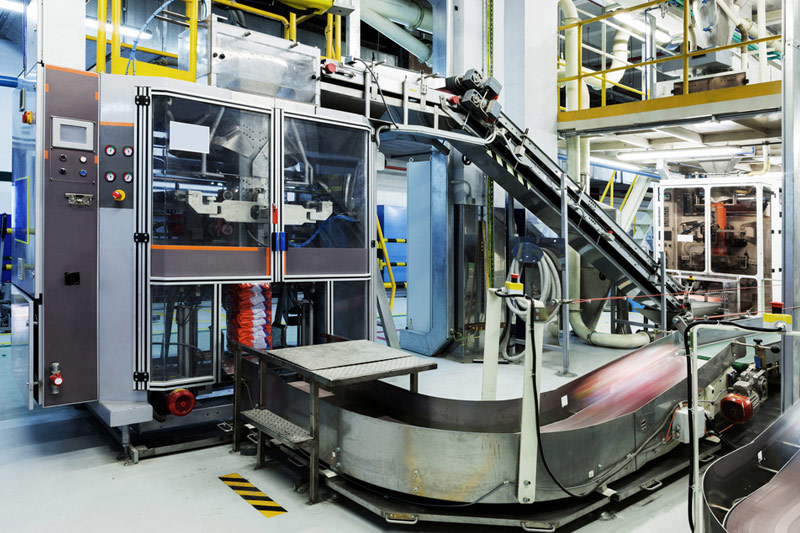The Australian Industry Group Australian Performance of Manufacturing Index (Australian PMI) slumped 7.0 points to 51.3 in November, indicating slower growth in the manufacturing sector. This is the lowest result since October 2017 but still extends the index's period of uninterrupted growth to 26 months (readings above 50 indicate expansion in activity, with the distance from 50 indicating the strength of the increase).
Ai Group Chief Executive Innes Willox said: "The recovery in the Australian manufacturing sector slowed in November, with the Australian PMI falling to its lowest level in a little over a year. Despite this slowing, manufacturing extended its run of uninterrupted growth to 26 months. Food and beverages manufacturers reported higher production in the lead up to Christmas and respondents in other sectors reported high levels of activity related to infrastructure and construction projects, particularly in Victoria.
"While it is too early to say that winter is coming for the sector, there are clouds on the horizon with new orders falling into contraction. Drought conditions in New South Wales and Queensland are now having an adverse impact on input costs and sales for some manufacturers and uncertainty over the direction of energy prices and policy is weighing heavily on the more energy-intensive parts of the sector," Mr Willox said.
Australian PMI: Key Findings for November:
- The Australian PMI has indicated positive conditions (results above 50 points) for 26 consecutive months – the longest run of recovery or expansion since 2005.
- Five of the seven activity indexes in the Australian PMI expanded in November (see table below), while employment was broadly stable (down 3.2 points to 49.4). The new orders index fell into contraction (down 10.1 points to 48.7) for the first time since September 2016, suggesting tougher conditions may be ahead for manufacturers in some sectors.
- Five of the eight manufacturing sectors expanded in November (trend data*), with the remaining three broadly stable. Growth was led by the printing & recorded media (up 4.6 points to 67.6), food & beverages (down 0.9 points to 57.9) and non-metallic minerals (mainly building and construction-related products – down 2.0 points to 74.9) sectors.
- The input prices index rose 2.2 points to 75.0 in November, with food & beverages manufacturers reporting higher prices for raw agricultural inputs and high energy input costs continuing across other sectors. The wages sub-index fell back further from September’s record high, dropping 8.2 points to 58.8.
- The manufacturing selling price sub-index dropped to its lowest level of 2018, falling 6.7 points to 50.4 in November. This indicates very modest price increases for manufacturing customers, with the upward trend evident throughout this year appearing to have halted.
|
Seasonally adjusted |
Index this month |
Change from last month |
12 month average |
Trend |
Index this month |
Change from last month |
12 month average |
|
Australian PMI® |
51.3 |
-7.0 |
57.2 |
Food & beverages |
57.9 |
-0.9 |
58.9 |
|
Production |
51.8 |
-9.8 |
58.4 |
Machinery & Equipment |
50.2 |
-1.0 |
56.1 |
|
Employment |
49.4 |
-3.2 |
54.7 |
Metals products |
50.9 |
-0.3 |
55.3 |
|
New Orders |
48.7 |
-10.1 |
58.3 |
Chemicals |
54.5 |
1.1 |
59.5 |
|
Deliveries |
54.4 |
-6.5 |
58.4 |
Non-metallic minerals |
74.9 |
-2.0 |
68.0 |
|
Stocks |
57.4 |
1.4 |
53.6 |
TCF, furniture & other |
49.9 |
0.5 |
47.0 |
|
Exports |
50.8 |
-4.3 |
53.8 |
Wood & paper |
56.8 |
-3.6 |
55.7 |
|
Sales |
52.6 |
-7.2 |
56.4 |
Printing & recorded media |
67.6 |
4.6 |
53.7 |
|
Input prices |
75.0 |
2.2 |
71.0 |
||||
|
Selling prices |
50.4 |
-6.7 |
54.0 |
||||
|
Average wages |
58.8 |
-8.2 |
61.5 |
||||
|
Capacity utilisation (%) |
79.5 |
-0.8 |
79.0 |
Results above 50 points indicate expansion. * All indexes for sectors in the Australian PMI are reported in trend terms (Henderson 13-month filter).
Background: The Australian Industry Group Australian Performance of Manufacturing Index (Australian PMI) is a national composite index calculated from a weighted mix of the diffusion indices for production, new orders, deliveries, inventories and employment. An Australian PMI reading above 50 points indicates that manufacturing activity is expanding; below 50, that it is declining. The distance from 50 indicates the strength of expansion or decline. Australian PMI results are based on responses from a national sample of manufacturers that includes all states and all sub-sectors. The Australian PMI uses the ANZSIC industry classifications for manufacturing sub-sectors and sub-sector weights derived from ABS industry output data. Seasonally adjusted and trend data are calculated according to ABS methodology. The Australian PMI commenced in 1992. More information about the history and methodology of the Australian PMI is available online.
Please click below to read the full report:
